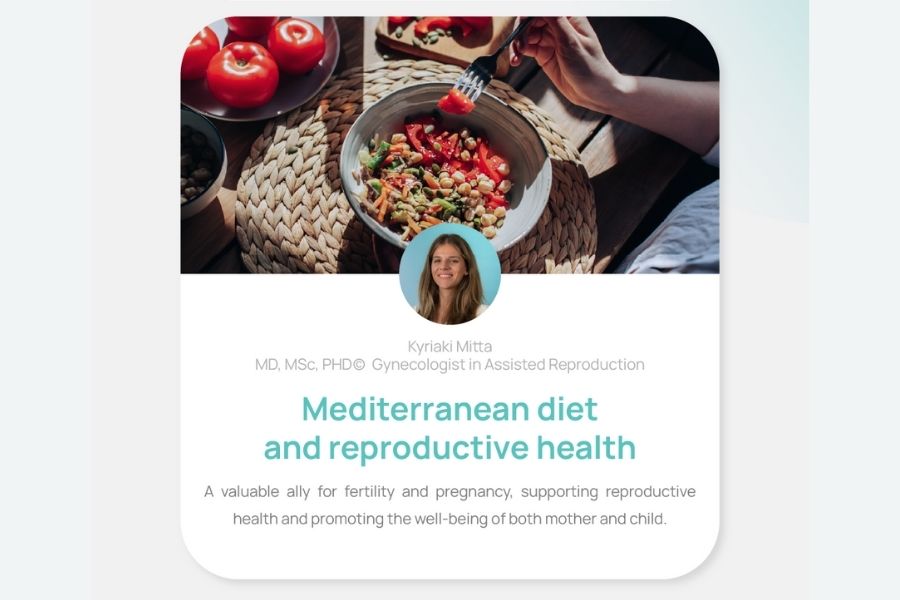
Kyriaki Mitta, MD, MSc, PHD(c), Gynecologist in Assisted Reproduction
The Mediterranean diet is more than a nutritional plan, it’s a lifestyle based on fresh fruits and vegetables, legumes, fish, olive oil, and nuts. It has already been linked to a lower risk of obesity, heart disease, and diabetes. In recent years, however, research has shown that it may also play a decisive role in reproductive health.
Studies indicate that women who follow the Mediterranean diet during pregnancy are less likely to develop gestational diabetes, hypertension, or preeclampsia, while the risk of premature birth is significantly reduced. In fact, the benefits are greater when this diet is adopted as early as the first trimester of pregnancy. There is also evidence that the Mediterranean diet can improve fertility by reducing the risk of conception difficulties, while it may help alleviate symptoms in women with premenstrual syndrome or endometriosis. As for polycystic ovary syndrome, data are not yet conclusive, but most studies point in a positive direction.
The benefits of the Mediterranean diet extend beyond the mother. Thanks to its high content of antioxidants and anti-inflammatory components, it reduces oxidative stress, improves blood sugar regulation, and supports gut microbiome balance. This is important because the mother’s microbiome health can influence the future health of her child. In other words, the Mediterranean diet is an investment not only for the present but also for future generations.
There is also particular interest in its impact on in vitro fertilization (IVF). Women who adhere more closely to the Mediterranean diet appear to respond better to ovarian stimulation, resulting in more fertilized eggs and a greater number of viable embryos. Moreover, maintaining this dietary pattern is associated with higher chances of success, especially among younger women undergoing assisted reproduction.
Finally, it’s worth noting that these positive effects become even stronger when the Mediterranean diet is combined with gentle, regular physical activity. A daily walk or a relaxed bike ride is enough to enhance health and support the journey toward pregnancy.
The Mediterranean diet can be a valuable tool for every woman trying to conceive, whether naturally or through assisted reproduction. It’s not a restrictive “diet” but rather an enjoyable way of eating that nourishes the body, supports fertility, and promotes the health of both mother and child. It offers a way to reduce pregnancy complications, strengthen fertility, and improve reproductive health throughout life.





